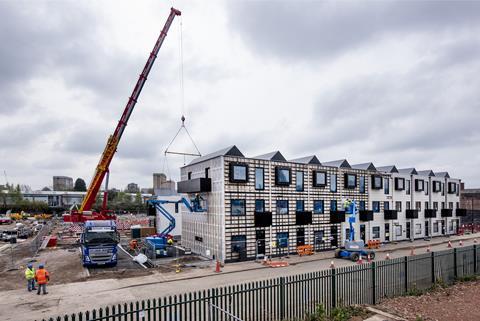Trade body report says modular homes are 55% less expensive than a traditional brick-built house to heat
The Government should allocate 20% of its Affordable Housing pot to modular housing, according to a new trade body for the modular industry.

Make UK Modular, the trade body for modular housing, has released a report saying if the Government backed modular construction 20,000 low energy use homes could be delivered across the UK.
These homes would cost 55% less to heat than the average family house made of brick, the report said, and 32% less than a traditional new build.
Steve Cole, director of Make UK Modular, said: “Government must capitalise on this as opportunities to transform our broken housing market into the most sophisticated in the world do not come around every day.
“Government must accelerate modular delivery, building on the investment made and the jobs created, by removing the remaining barriers holding the industry back.”
This comes after companies have struggled to make modular businesses work. Last month high-rise off-site manufacturing firm Vision Modular systems saw profits fall back by 25% and modular housebuilding venture Urban Splash House fell into administration in May, owing more than £20m to suppliers and backers.
Make UK Modular’s analysis ‘Greener, Better, Faster: Modular’s Role in Solving the Housing Crisis’ suggested if planning permission were fast-tracked for modular housing, it could create homes twice as fast and 4,000 jobs could be created in ‘left behind’ areas of the UK,
The trade body claimed: “Precision engineered homes, factory-built in areas where employment is required and delivered to regions of the UK where housing is scarce, are set to revolutionise the sector and help solve Britain’s growing housing crisis.”
It also concluded modular building can cut the amount of carbon dioxide produced as a result of construction by up to 83%.
Modular manufacturers have built factories in post-industrial provincial towns or cities, creating more than 3,000 jobs, and delivering £700m of investment to low-growth, low employment areas, the report said.










No comments yet